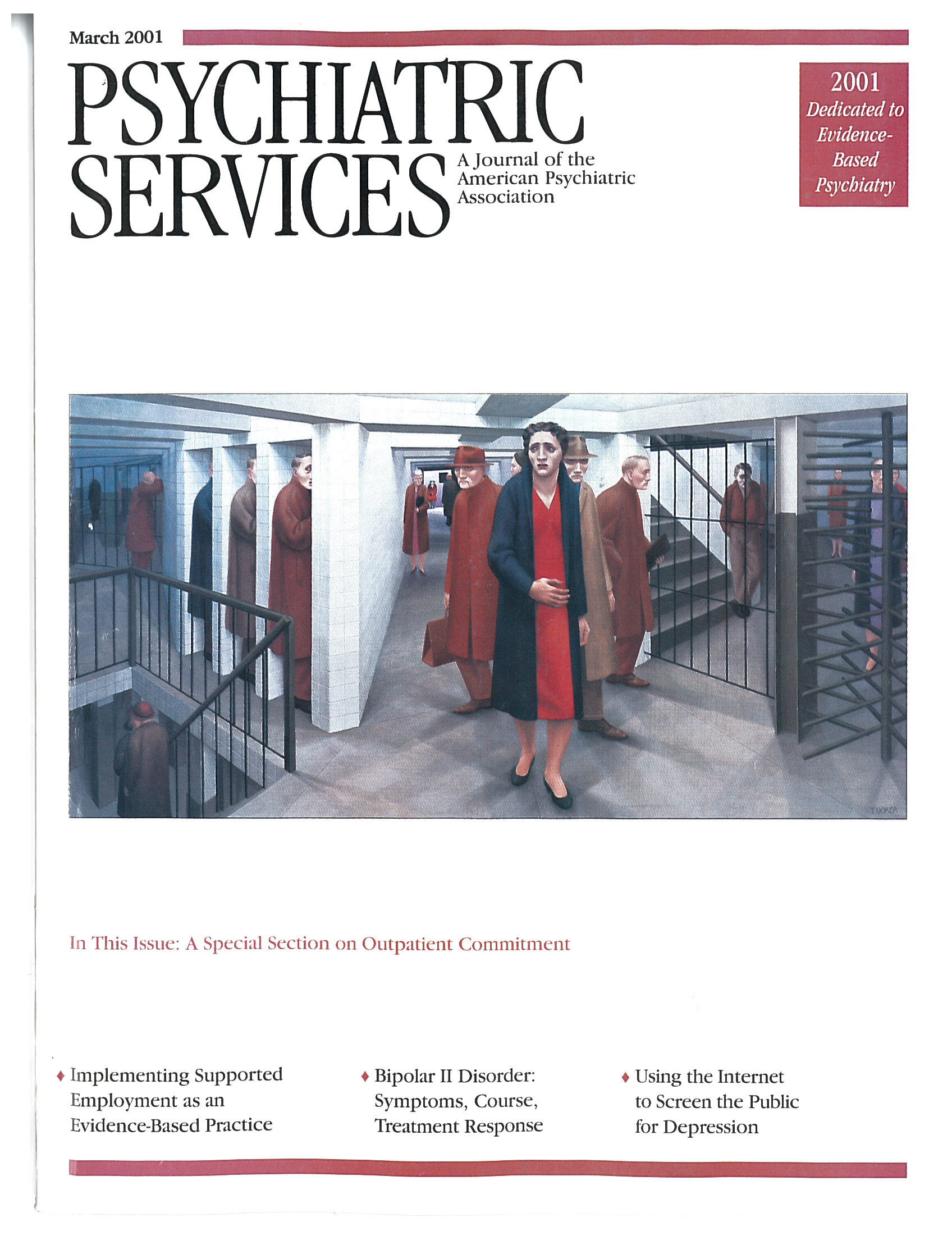To the Editor: The column in the February issue by Kamali and his colleagues (
1) raises the complex issue of the relationship between insight, substance misuse, and medication compliance. Attempts to define insight and determine the relationships between insight and behavior have a long history in the mental health field. However, many studies have suffered from inexact assessment of insight and poor operationalization of terms. In clinical settings insight is assessed inferentially and is based on a clinician's judgment of a patient's illness. Definitions of insight are further obscured when the term is used to refer to attitudes, beliefs, recognition, understanding, and consciousness without specification. With the advent of questionnaires to measure insight, its relationship to certain behaviors can be determined and its definition can be explored, even if its definition is more circumscribed than some would wish.
At its most basic, insight describes a belief that one's thoughts, affect, or behavior are connected to other events. Whether insight leads to constructive behavior, such as compliance with treatment, is likely to be influenced by the use of alcohol and illicit drugs. Higher levels of insight have been described among persons with mental illness who do not use drugs or alcohol.
In their column Kamali and his colleagues observed that patients' insight about their psychiatric problems was not associated with medication compliance if the patients had a substance use disorder. However, among patients who did not have a substance use disorder, greater insight was associated with better compliance. Other research has suggested that even among patients with a substance use disorder, regular administration of medications may limit the effects of substance abuse and reduce hospitalizations.
In psychology, research and theorizing about the often confusing relationship between beliefs or attitudes and behavior have a similarly long history, with no clear findings until relatively recently. One finding that has improved our understanding of insight is that it is not just the belief that the person holds that determines whether the belief leads to action—it is the centrality or importance of the belief for the person who holds it.
The belief that one has a problem and the belief that one can take constructive action (self-efficacy) will both lead to that action if the person considers the action important. It may be argued that for some people, obtaining and using alcohol and drugs are more important than caring for their illness. Effective substance abuse treatment is based on identifying factors that are necessary and sufficient to effect a shift in this equilibrium. From this perspective, the proverbial "hitting bottom" may be conceptualized as a change in a person's belief about the importance of taking action rather than the attainment of a new level of insight.
For dual diagnosis patients, interventions that decrease the subjective importance of substance abuse, such as prescribing naltrexone or clozapine, are one approach to shifting the equilibrium. Psychosocial interventions aimed at increasing the motivation for abstinence—its importance—and modifying behaviors have also received increasing attention. However, these increasingly useful interventions have been investigated primarily in samples of patients with substance use disorders rather than among dual diagnosis patients, for whom the methods may need adaptation. Without these interventions, the development of more reliable medication delivery systems is needed.

